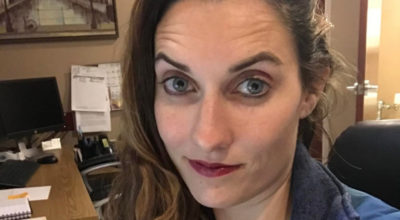
The American Bar Association is committed to having its members pursue a revolution against the Western legal and political order by joining in the global program of the United Nations.
By David Tulis / NoogaRadio Network
The global agenda by the U.N. is articulated at “Transforming our world: the 2030 Agenda for Sustainable Development.”
The “rule of law and good governance” is a controlling paradigm, with international law being the external standard for political and legal activity in any country or state ostensibly subject to the U.N.
In Tennessee, the judiciary for nearly 900 days has cooperated in the fraud of Covid-19 pandemic “response” by state government and local health departments led by Gov. Bill Lee.
Gov. Lee imposed a scorched-earth state of martial law starting March 12, 2020, with his first executive order under the emergency law, followed April 2 with his “safer at home” lockdown jailed-at-home order, aimed presumably at every one of the free citizens in the state of 6.8 million souls.
The lawyers commit to espousing what they term the “rule of law” in terms of international law and the religion of sustainable development as developed by the U.N. and the World Economic Forum, among other players.

Klaus Schwab in 2020 published a book, Covid-19: the Great Reset, outlining how fraud, the operating mechanism of the purported pandemic, will allow for wholesale transformation of institutions and customs in every state and country in the world.
Lawyers and judges, their group says, have a role in this reset.
My petition for equity and writ of mandamus, filed Oct. 2, 2020, projects that Tennessee lawyers’ commitment to the ABA agenda creates an inherent bias and prejudice against me in my effort to restore constitutional government. I have demanded that a hearing of my petition for writ of certiorari in the supreme court be heard by fresh ears, that four of the five justices disqualify for their bias, partiality and “interest” in the case as participants in the fraud in juncture with Gov. Lee.
Further grounds for recusal are justices’ membership in the bar and their having licenses to practice law.
‘Necessary institutional changes’
Lawyers in their union commit to change the form and nature of federal and state governments, and by slow degrees reduce the authority of constitutions.
In the United States, we do not yet have a comprehensive legislative framework that embraces sustainability. The National Environmental Policy Act of 1969, quoted above, is widely seen as providing the best current articulation of a unified environmental, economic and social perspective. Perhaps the leading edge of overall federal sustainability activity is Executive Order 13514, signed by President Obama in 2009, which directs federal agencies to set sustainability goals for their buildings and operations. Many believe that it will not be long before these efforts lead to the development in the United States of a national sustainability plan or national strategy on sustainability, along with the necessary institutional changes and supporting metrics. [Emphasis added]
Resolution of Aug. 12, 13, 2013, p. 3 https://www.americanbar.org/content/dam/aba/administrative/office_president/2013_hod_annual_meeting_105.authcheckdam.pdf
“Sustainability is best understood as a framework (or a perspective, lens, or approach) for the integration or balancing of environmental protection, economic development and social justice. These are the three pillars or prongs at the core of every sustainability discussion. *** [Sustainability is] broader than the ‘rule of law’ and ‘good governance. The rule of law and governance discussion is well-established and important, but, to be effective, we must address all aspects [of] sustainability in a variety of other settings. With this resolution, the American Bar Association expresses its intention to approach sustainability issues in a broader sense and within a more robust framework” (emphasis added).
Savings clause
The bar has a savings clause that allows its members to jerk its hand back from a wire electrified by constitutional energy and power.
The adjective is “appropriate,” meaning it is inappropriate if an aggrieve party can show to act to be unlawful or plaintly contradicted by statute or constitution. In other words, “We lawyers will push and push and push, until someone stops us.”
The legal tactic the past two years — in government agencies and corporations — has been legal presumption. Every person is presumed contagious and dangerous, unless that person is able to establish an administrative record that contradicts and rebuts the presumption.
A report for the resolution cites a 1991 resolution that “Urges the United Nations and each nation of the world to adopt and implement appropriate measures” toward sustainability thinking. The report cites a 2003 resolution that the ABA urges government bodies to “promote sustainable development, including by adopting and implementing appropriate measures” toward sustainability.
TEXT OF RESOLUTION
RESOLVED, That the American Bar Association reaffirms its 1991 and 2003 commitments to sustainable development, and defines sustainable development as “the promotion of an economically, socially and environmentally sustainable future for our planet and for present and future generations.”
FURTHER RESOLVED, That the American Bar Association urges all governments, lawyers, and ABA entities to act in ways that accelerate progress toward sustainability.
FURTHER RESOLVED, That the American Bar Association encourages law schools, legal education providers, and others concerned with professional development to foster sustainability in their facilities and operations and to help promote a better understanding of the principles of sustainable development in relevant fields of law.
The lawyers envision redefining the rule of law. The term means people in Tennessee are not governed by men (arbitrary and capricious), but by law (statutes regulate government activity without offense to foundational rights and liberties). The resolution changes premise, citing a 2003 resolution.
The rle of law is redefined:
The 2003 resolution recognized “that good governance and rule of law are essential to achieving sustainable development.”
‘Incorporate sustainability’
Lawyers are encouraged, whatever their specialty, to incorporate ‘sustainability” in their work and arguments. ““Applying sustainable development from a legal perspective means understanding, developing, and applying legal mechanisms that are relevant 105 5 to the complex relationships among economic, social, and environmental priorities. This suggests a cross sectional approach…that integrates a variety of legal specialties, including environmental, labor, property, tax, corporate, finance, international trade, and risk management.”
The courts in Tennessee have fully adopted the ABA agenda toward sustainability, with the Covid-19 purported pandemic a most opportune event by which to promote a reset in the legal profession toward sustainability.
The ABA encourages governments, businesses and other entities to adopt and implement legal and policy incentives to support and encourage sustainable development; urges the U.S. government to take a leadership position in ongoing and future negotiations on sustainable development, including climate change, and urges lawyers, law firms, and other law organizations bar associations to foster sustainability.

